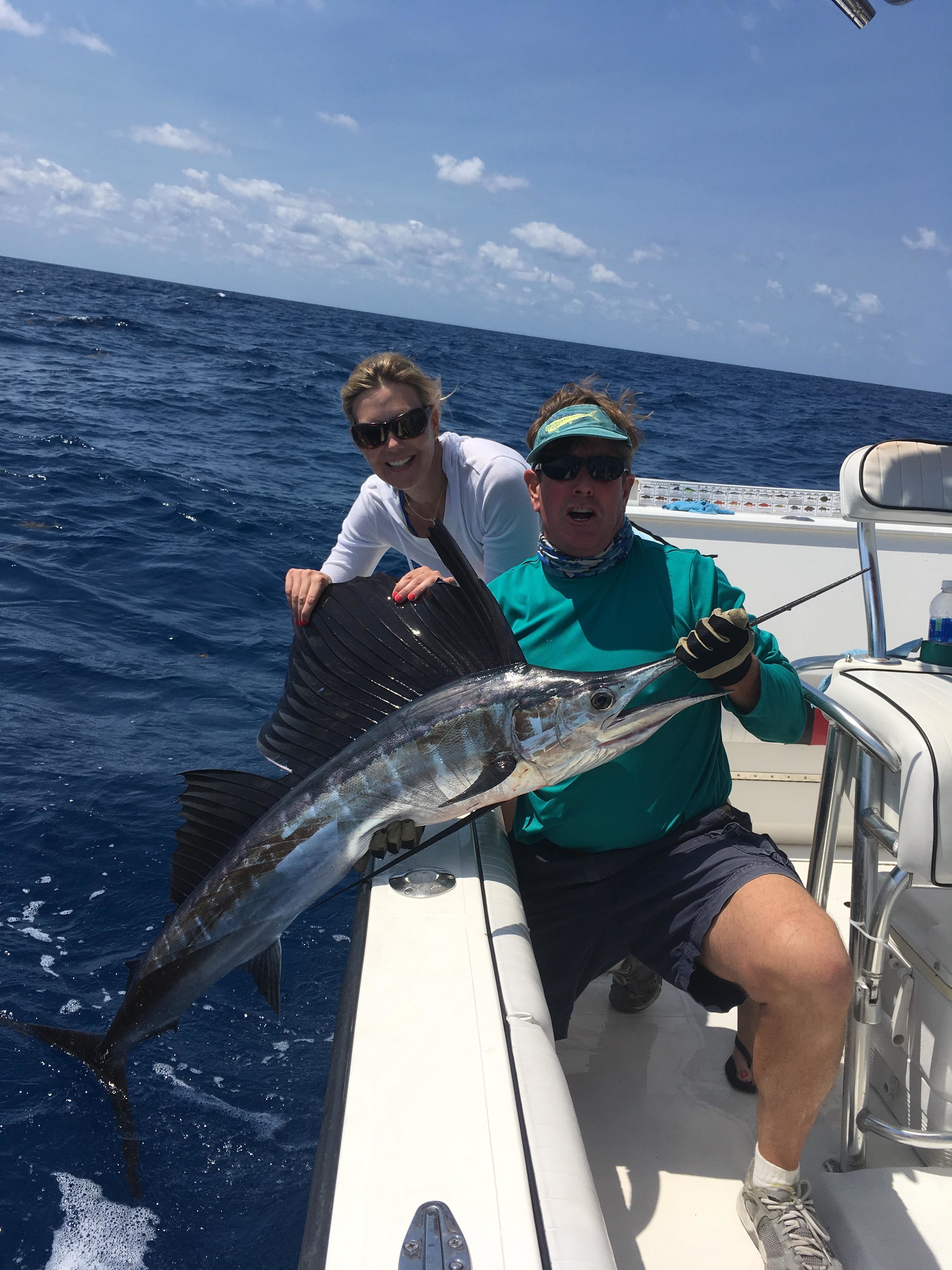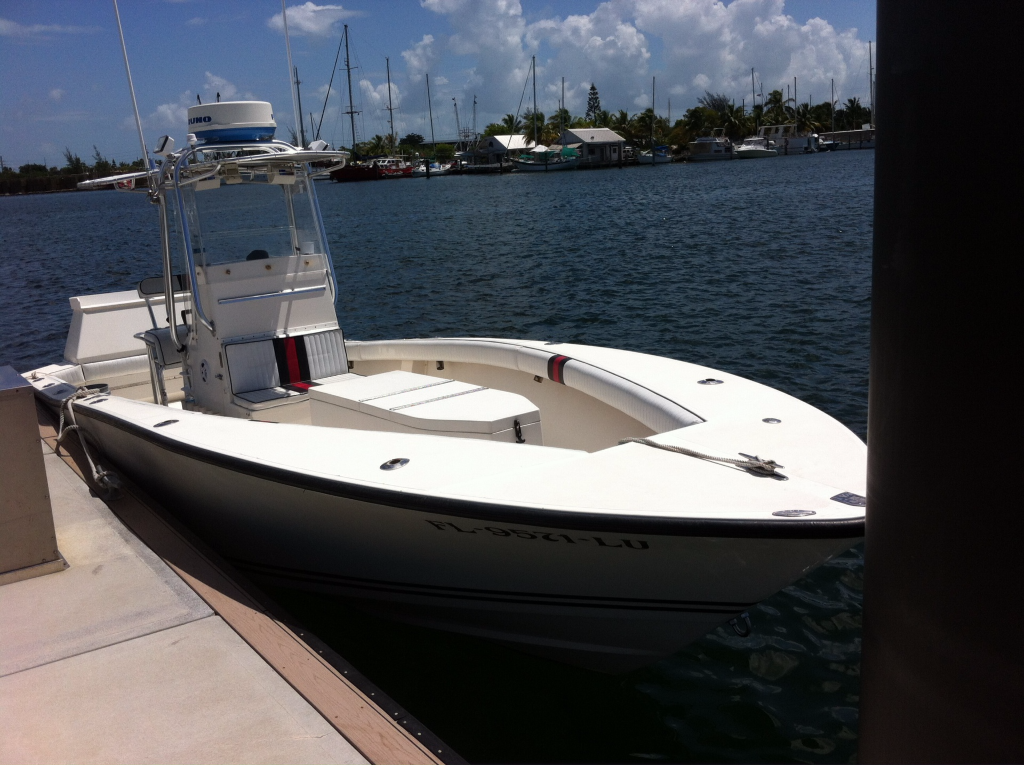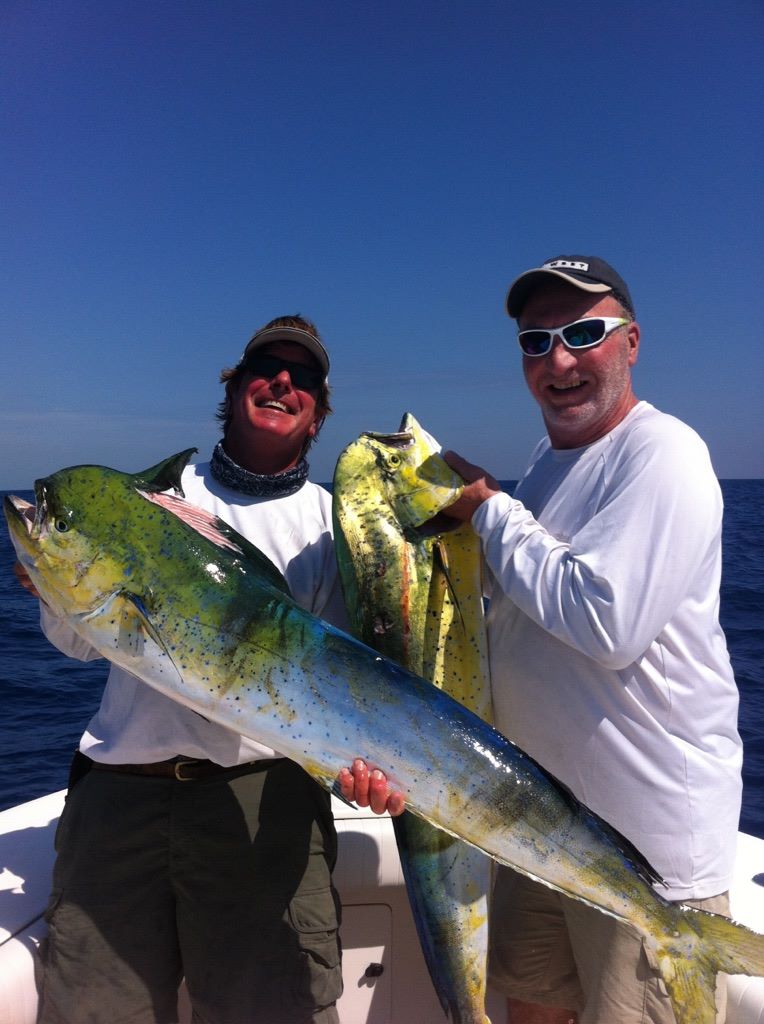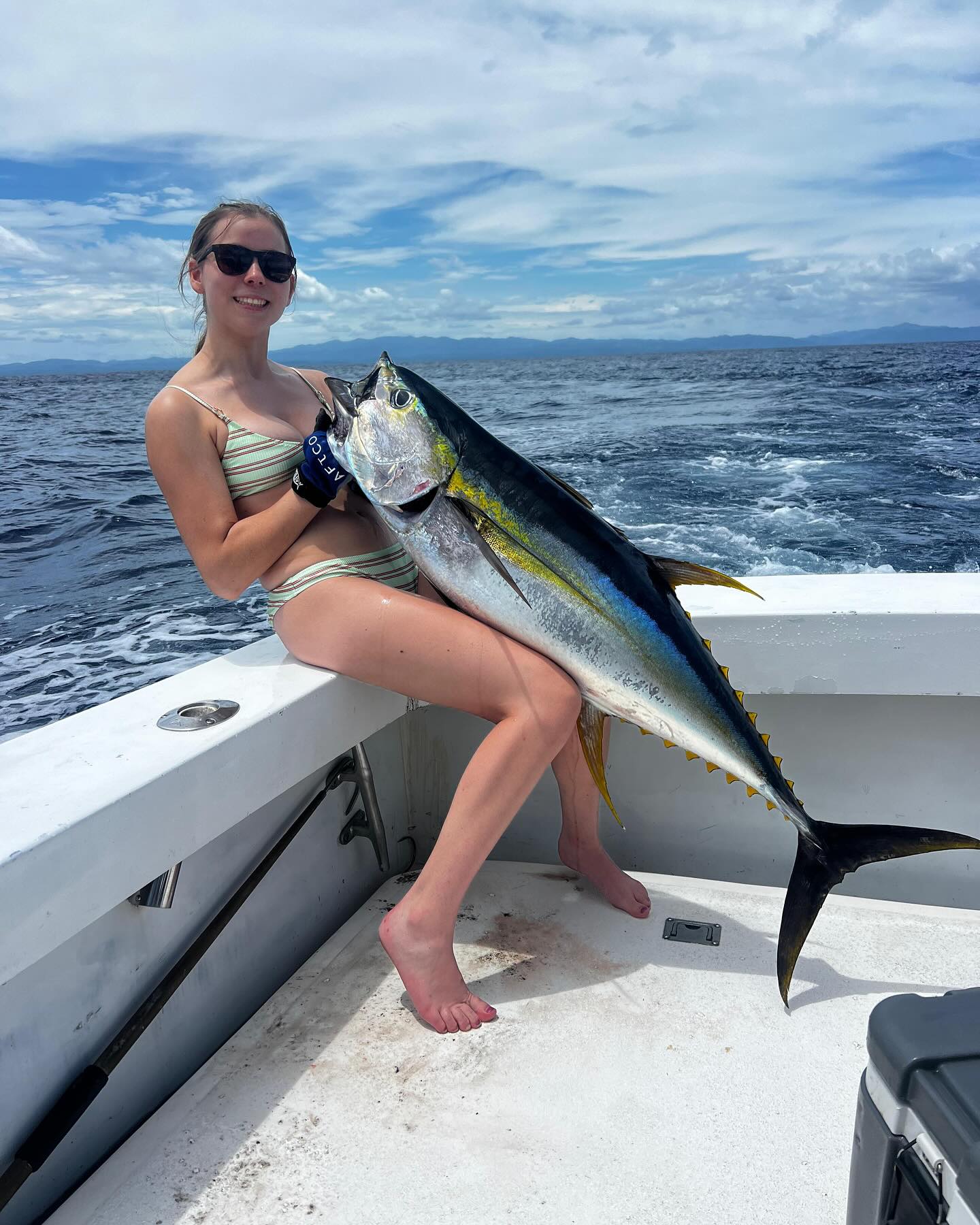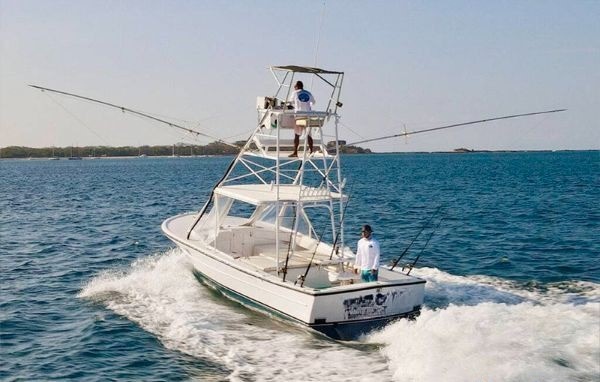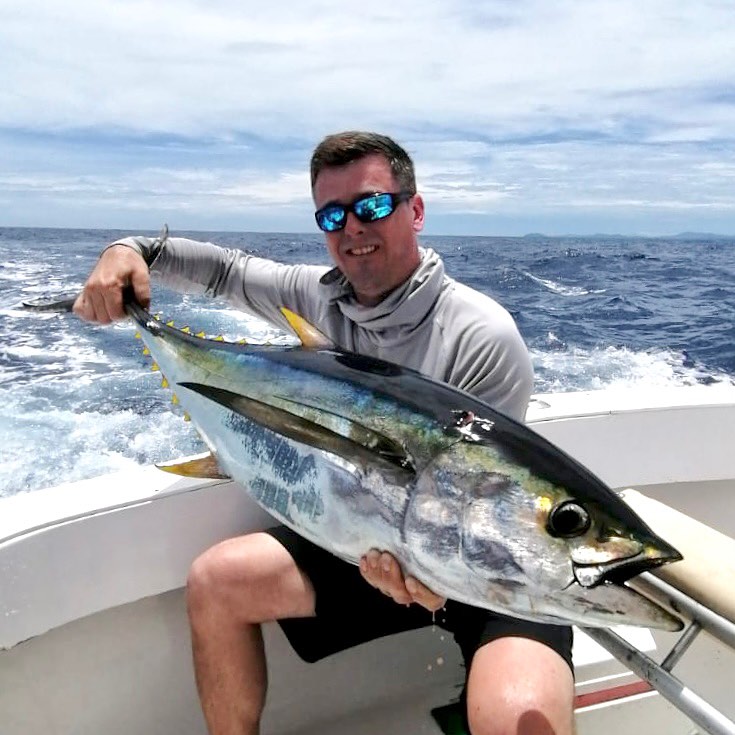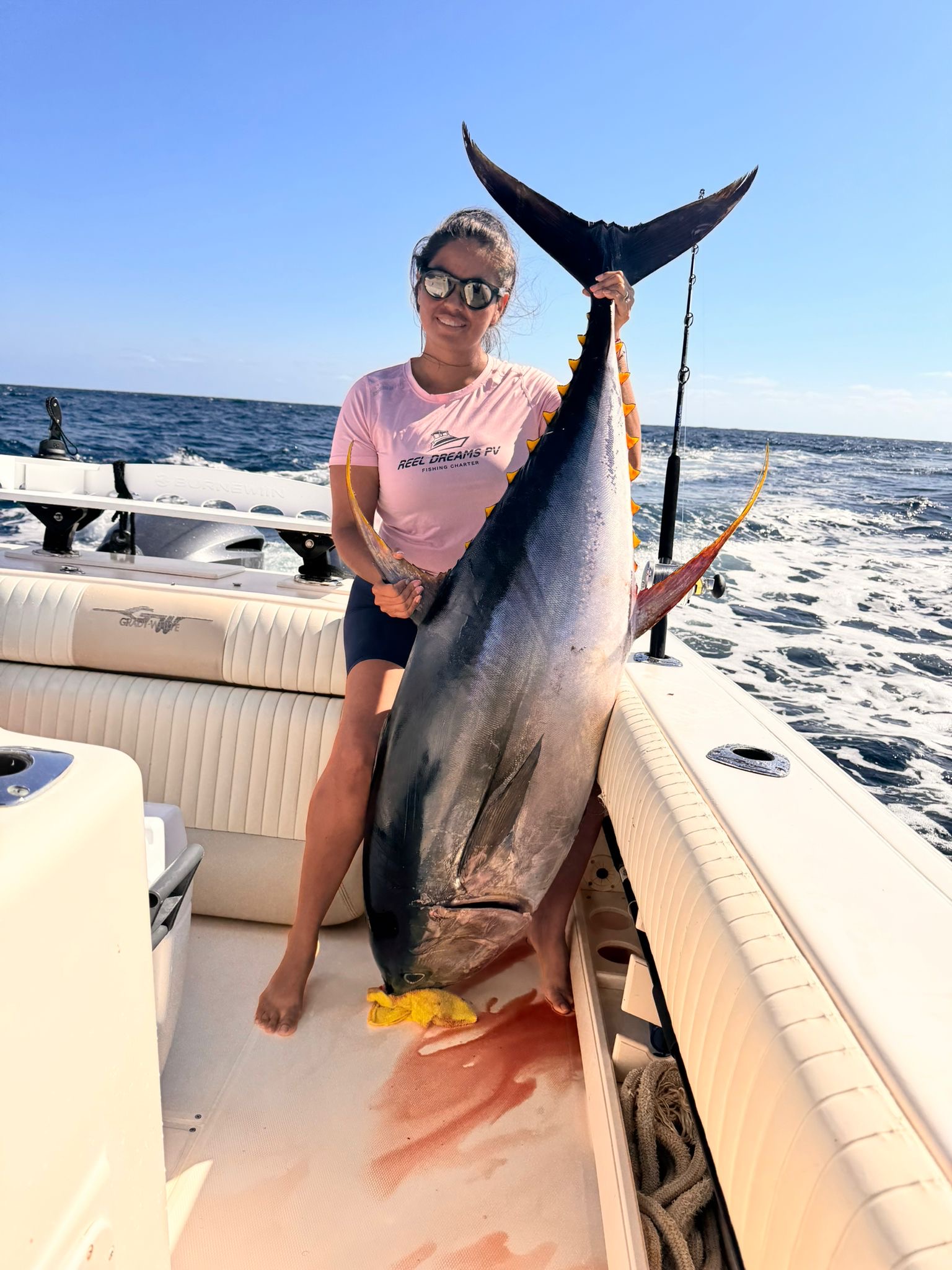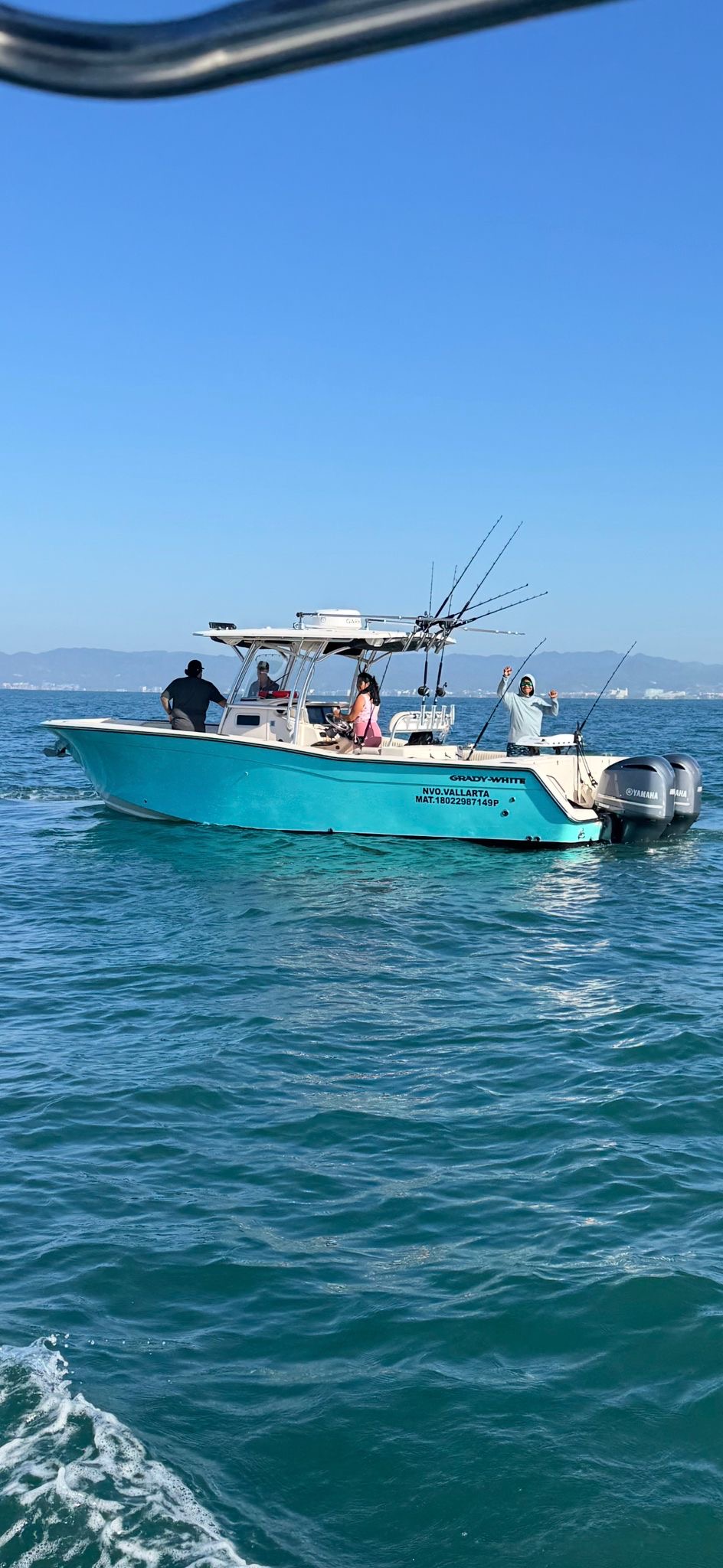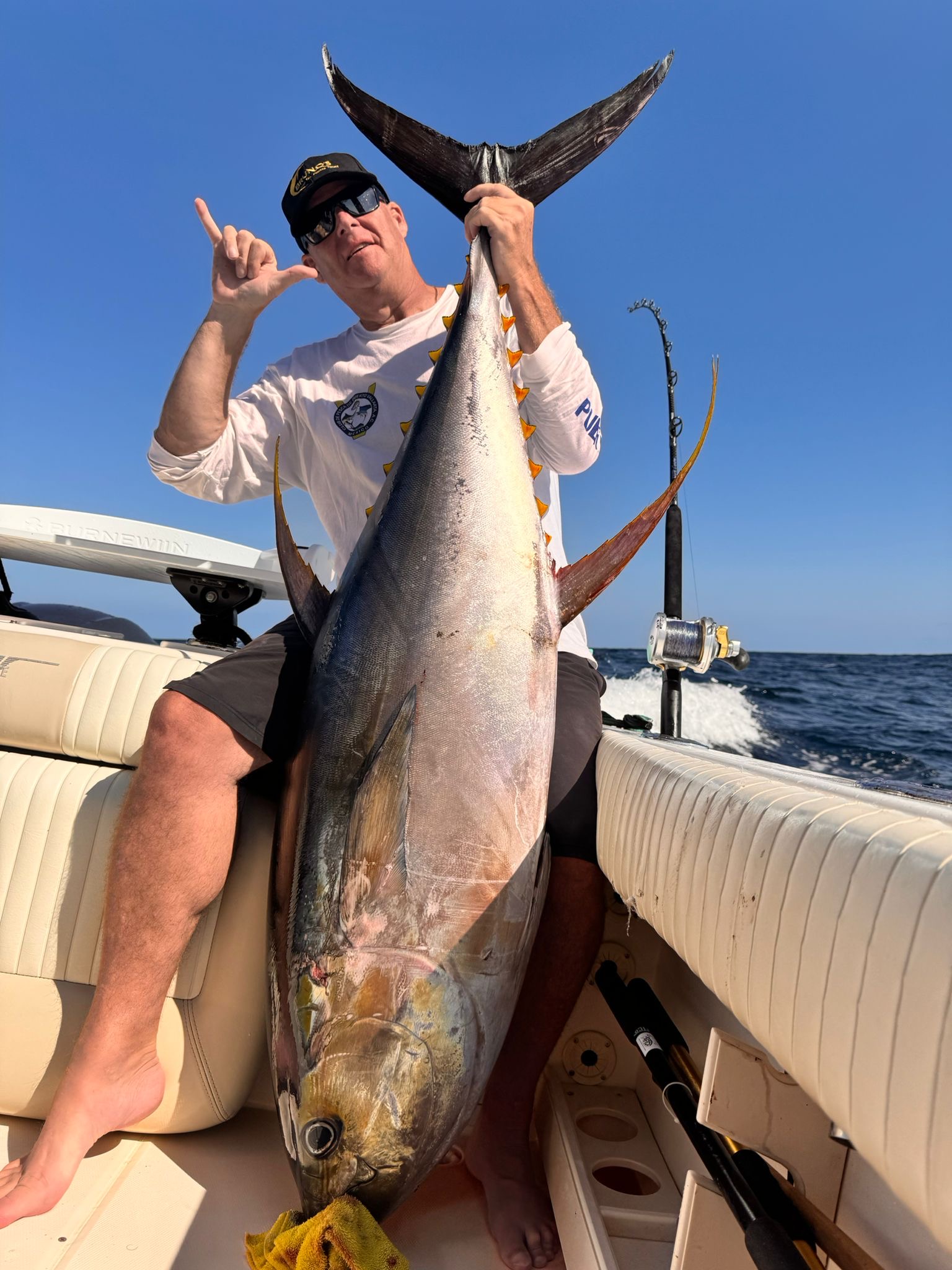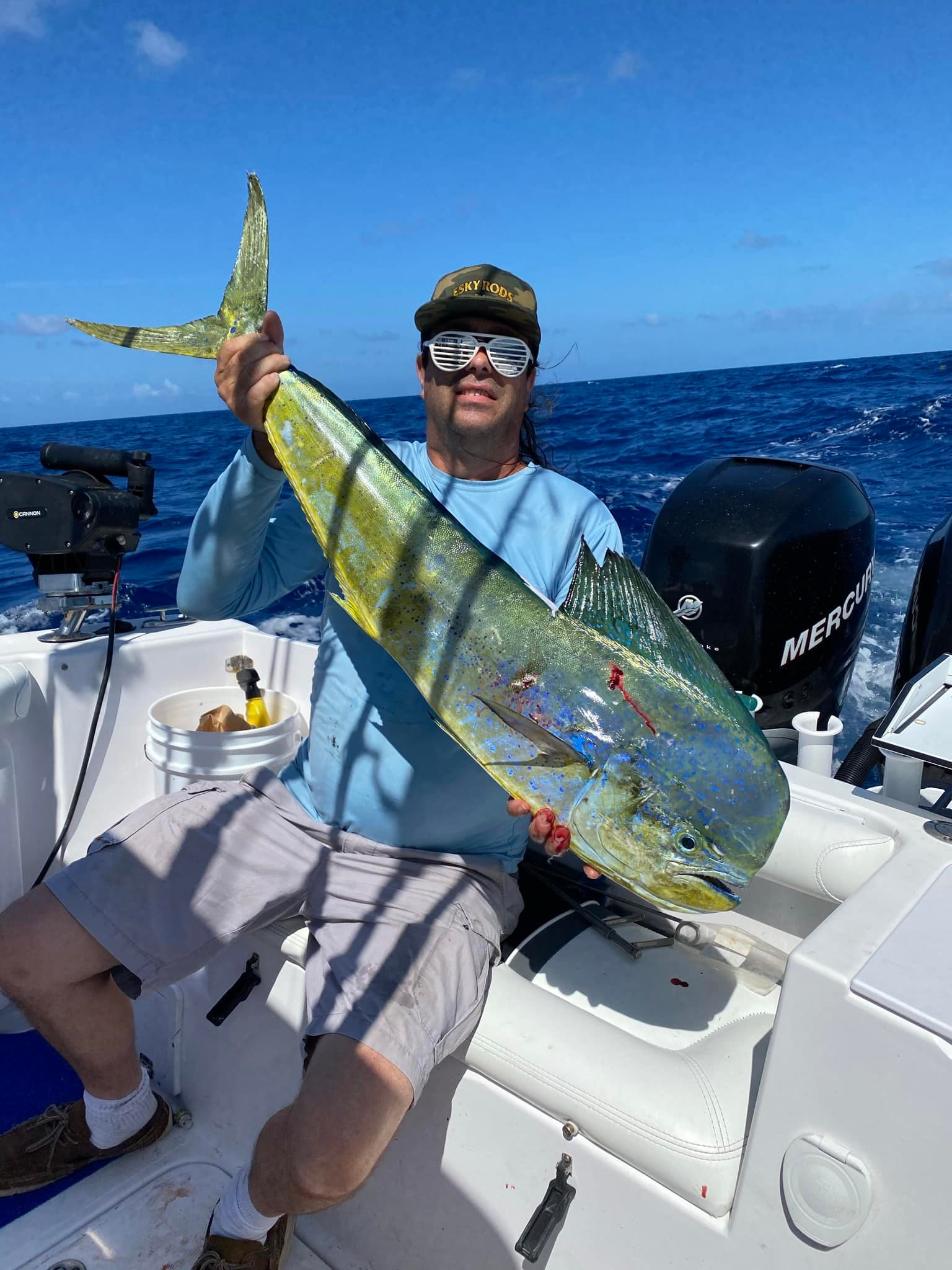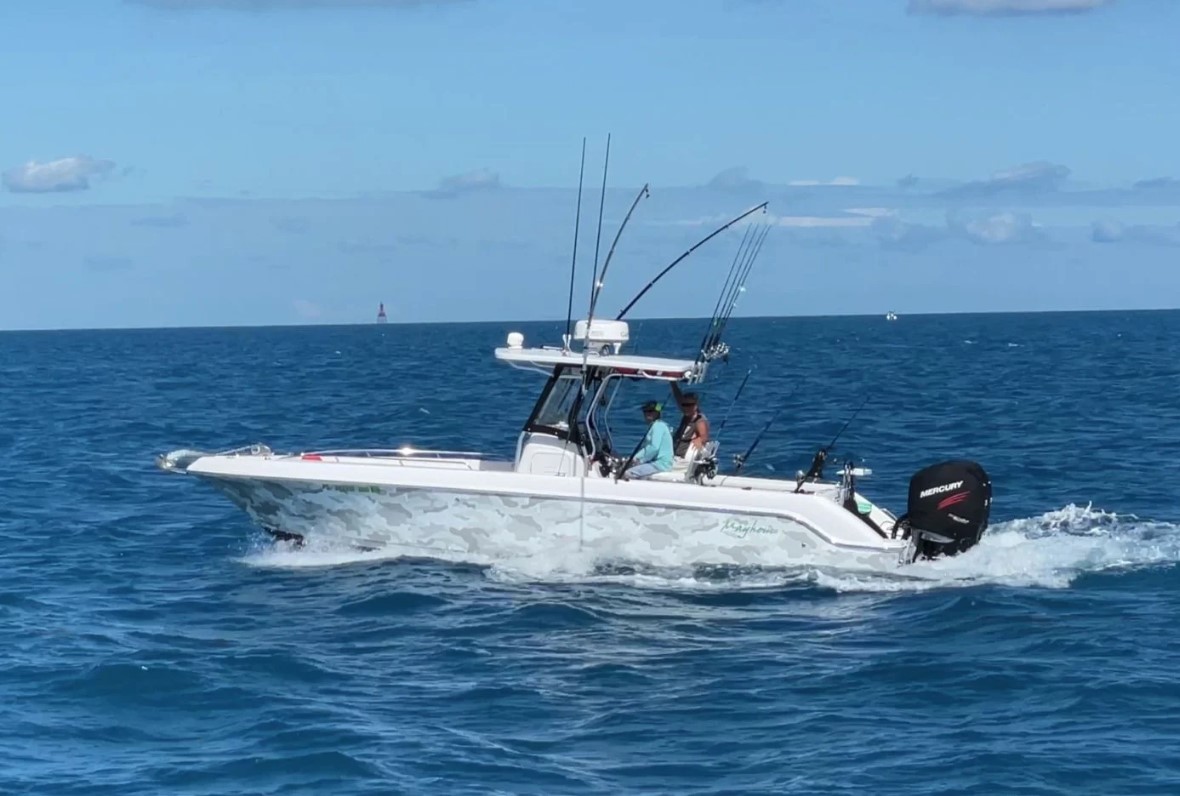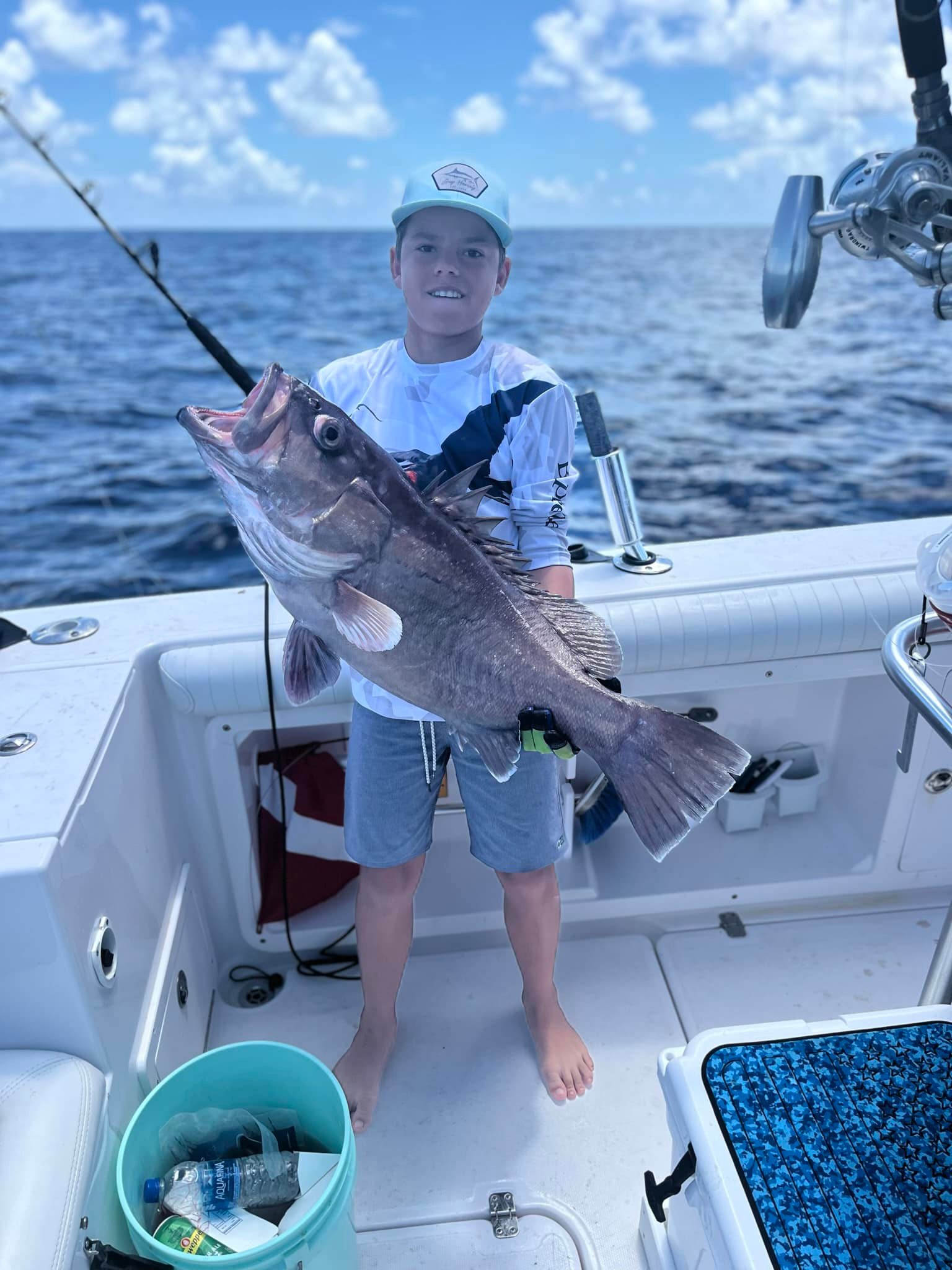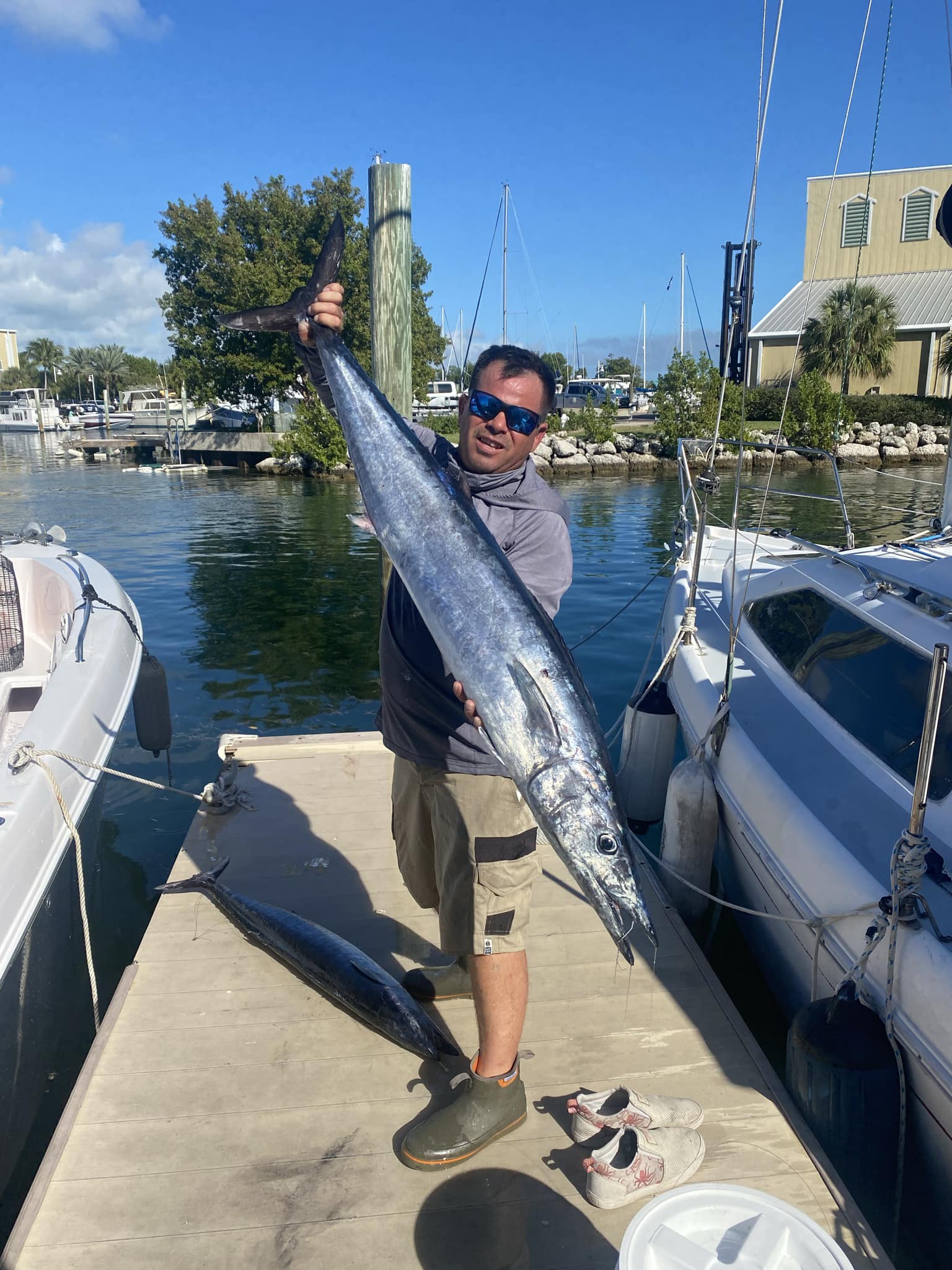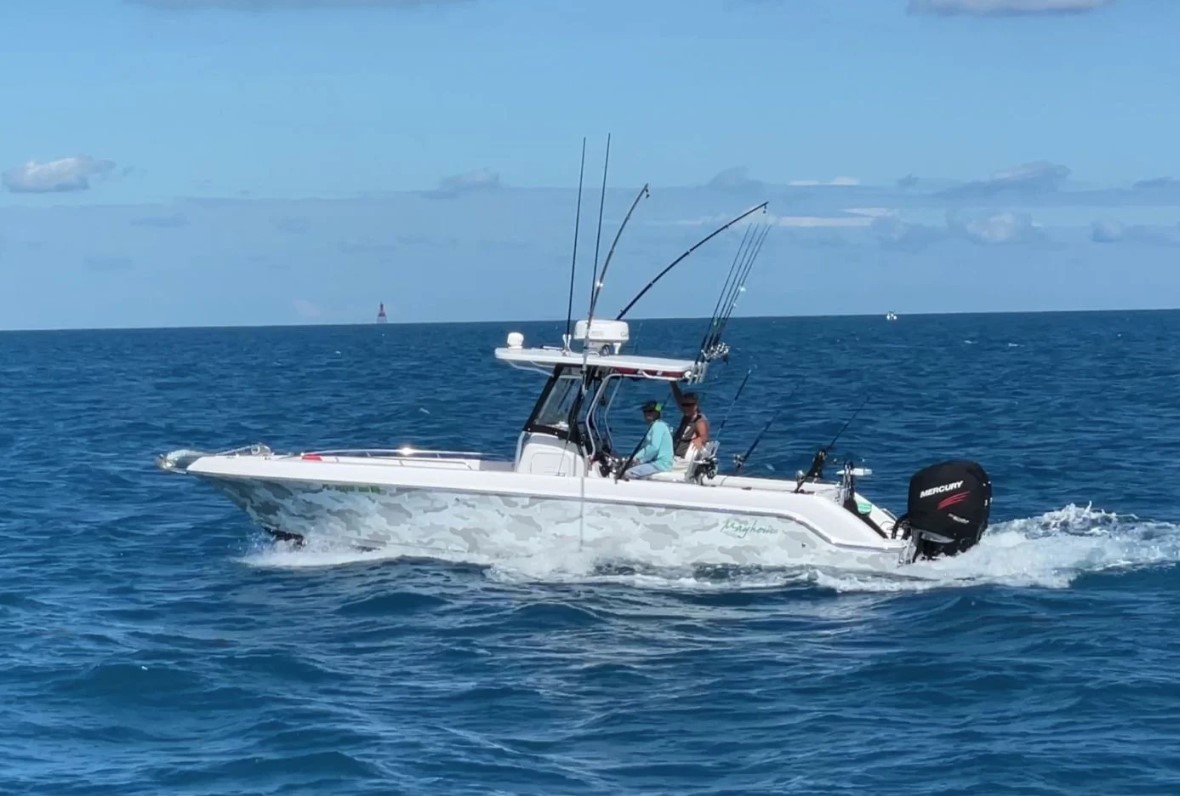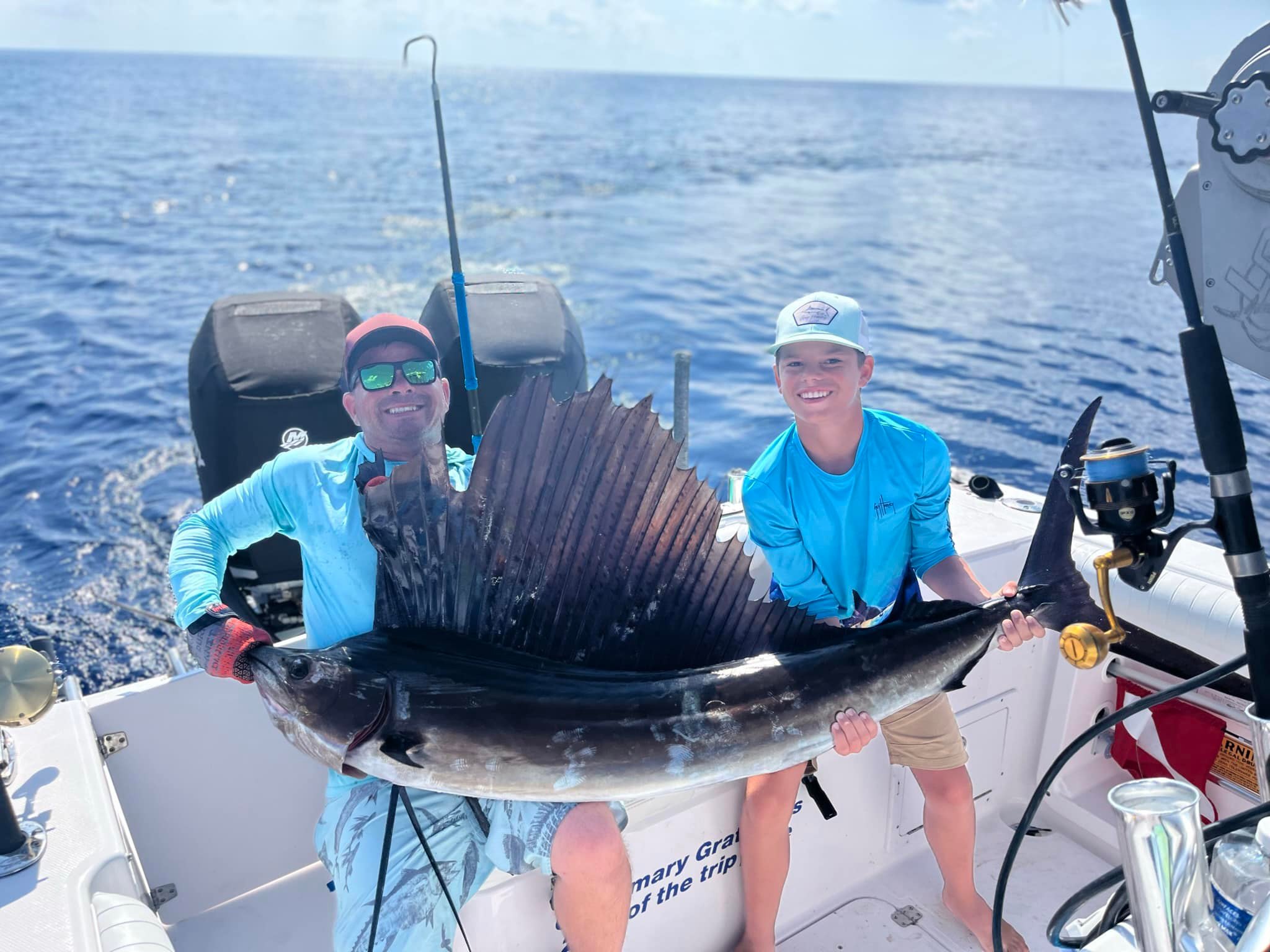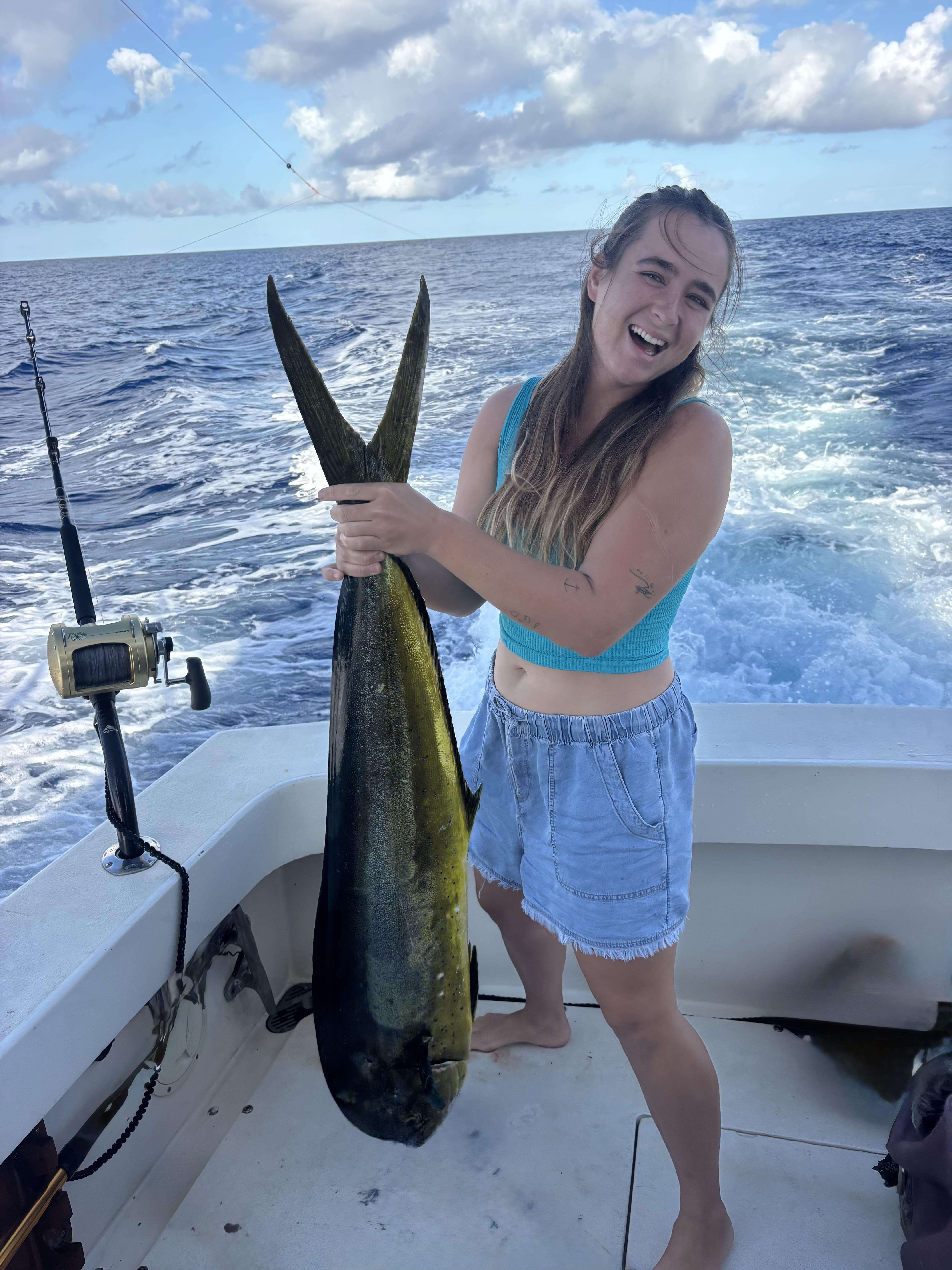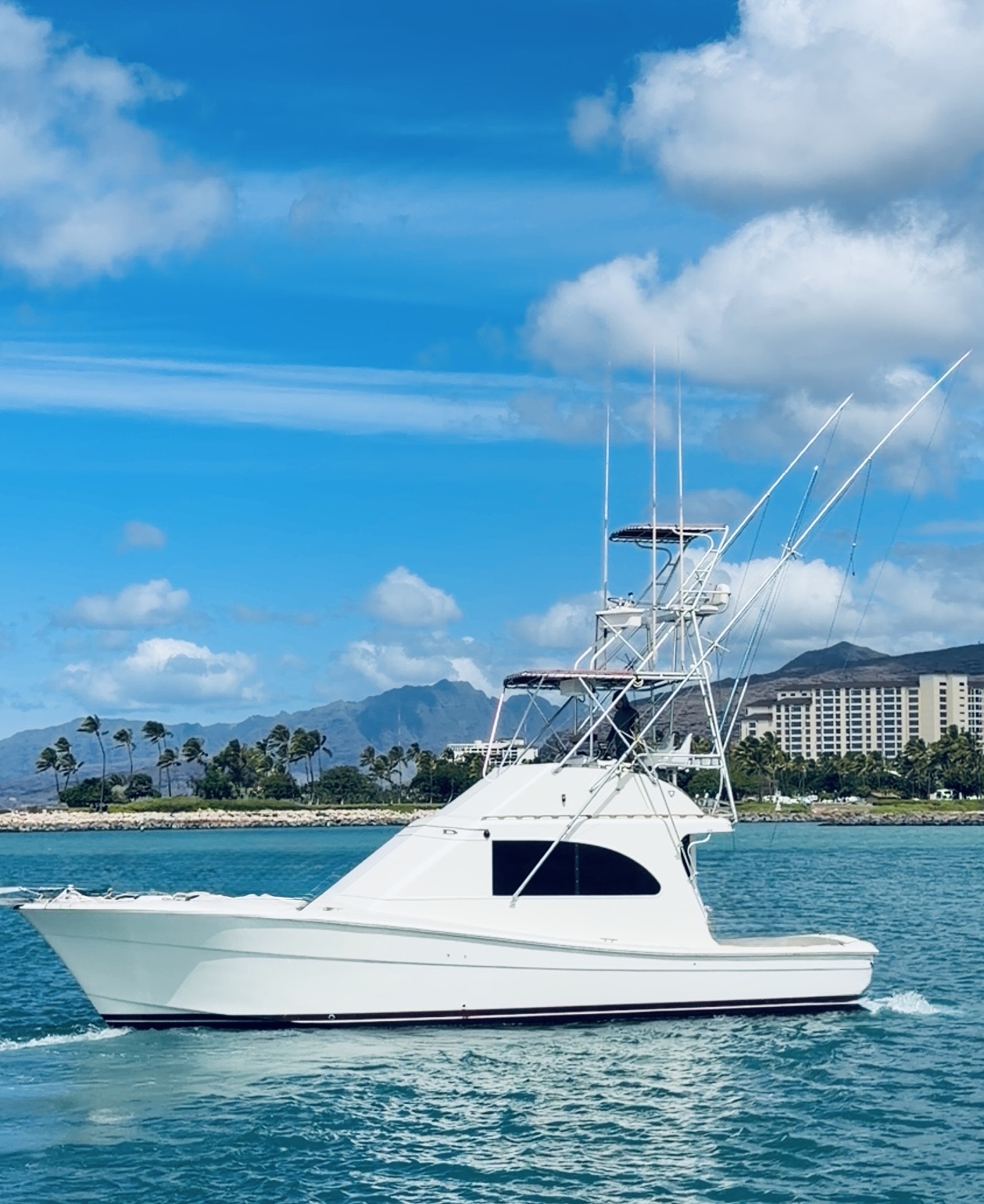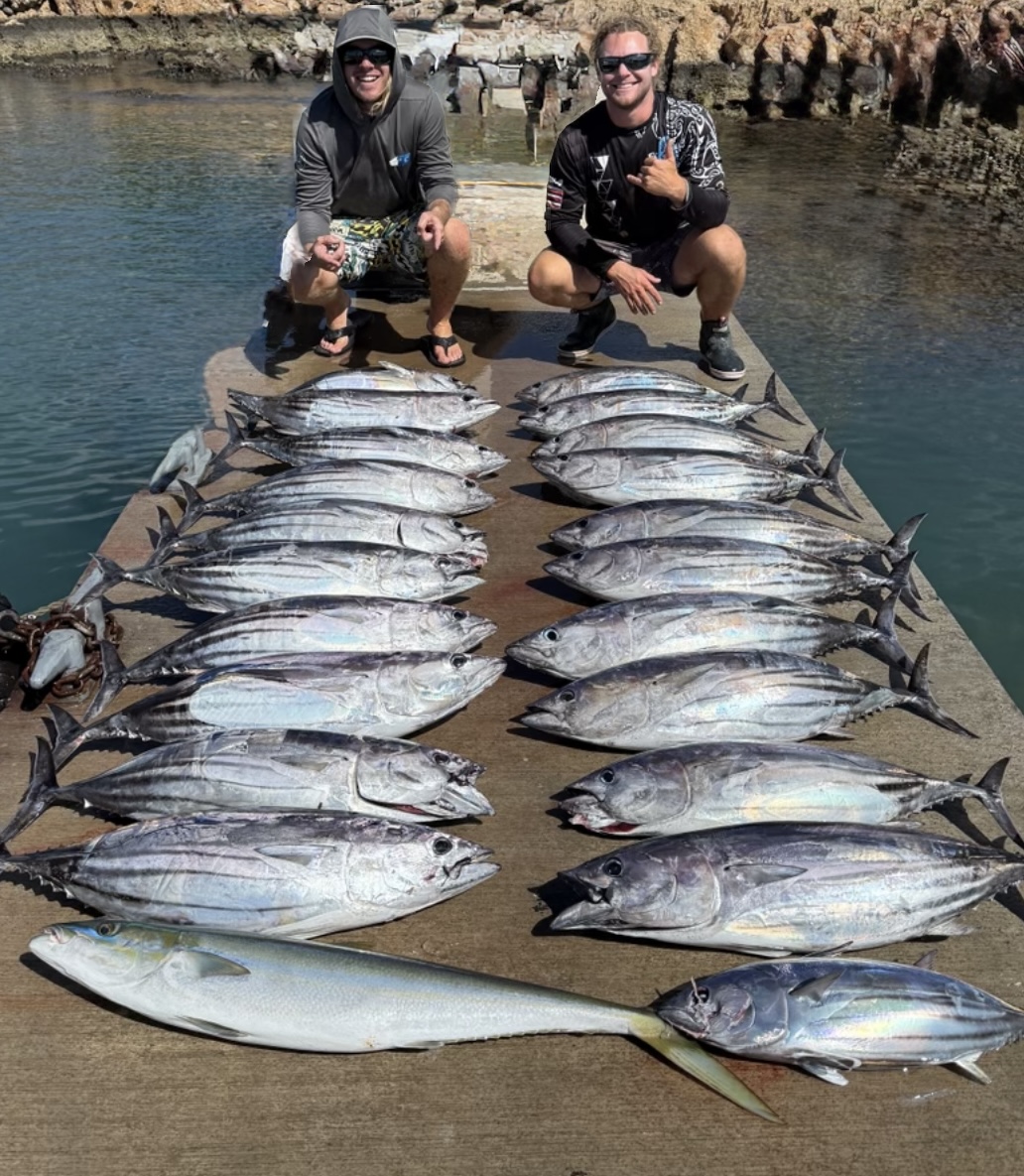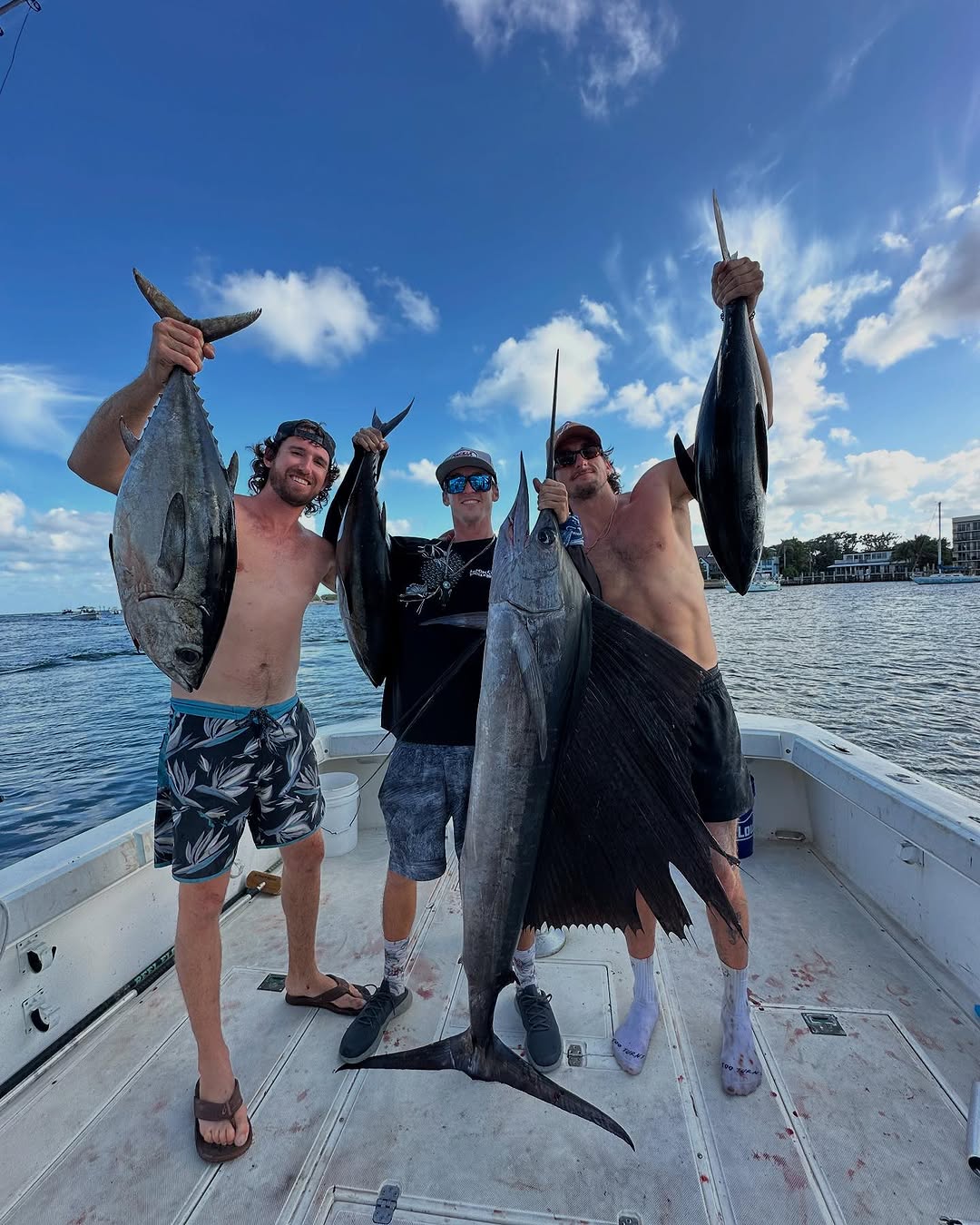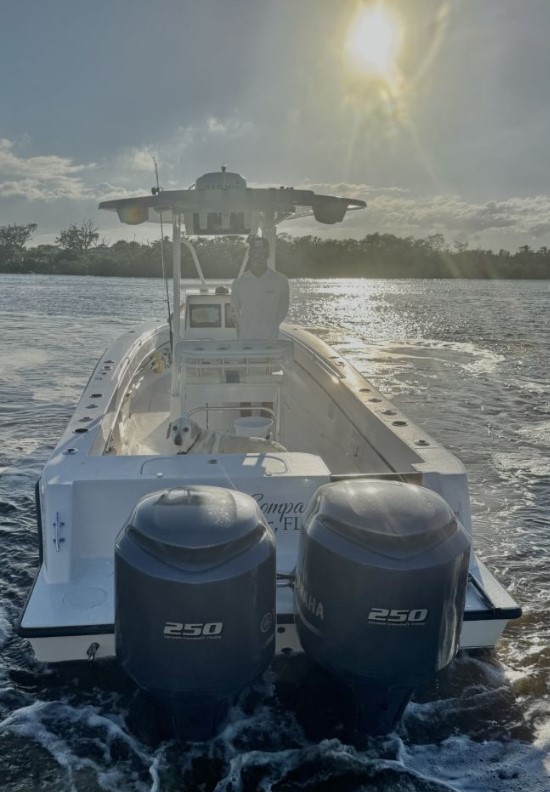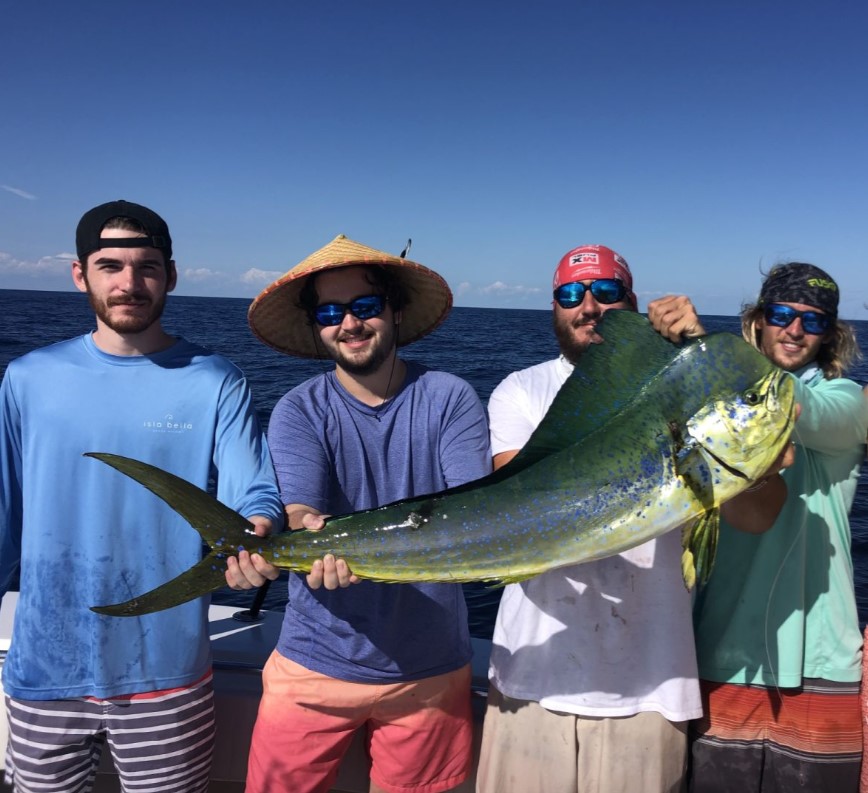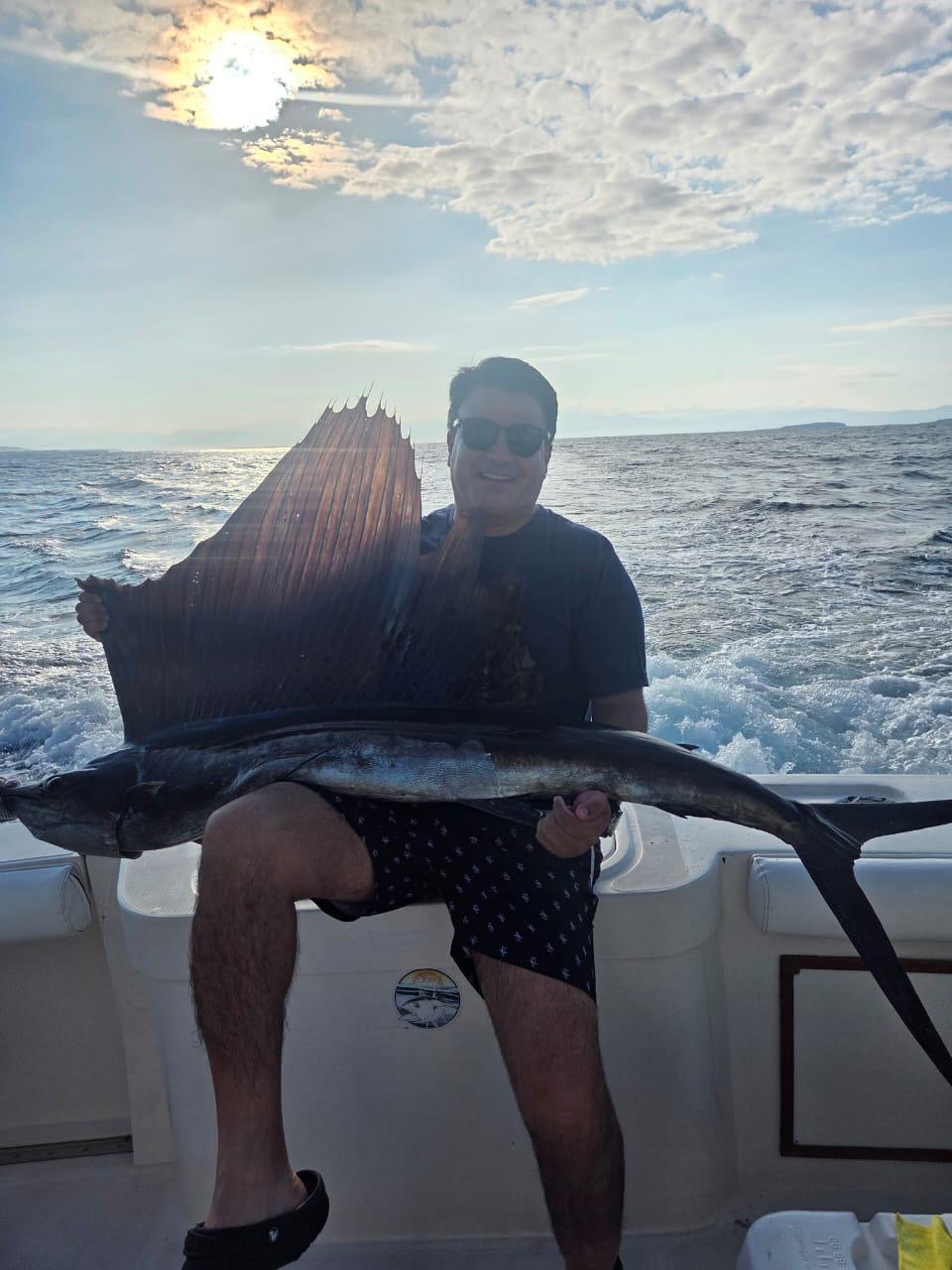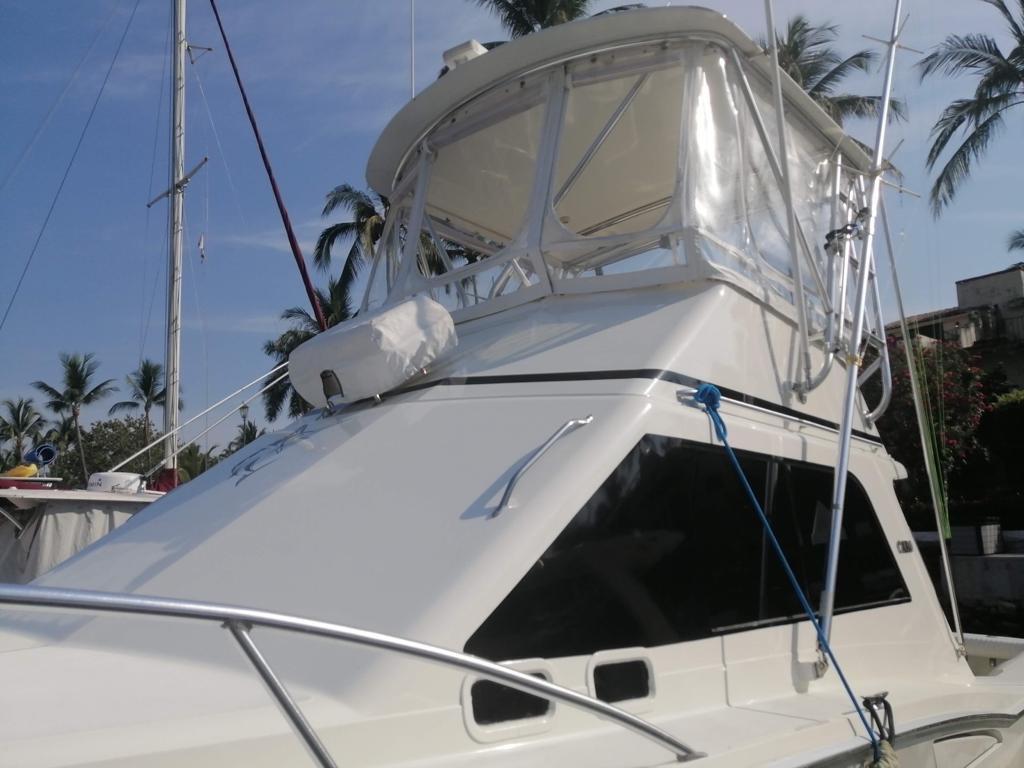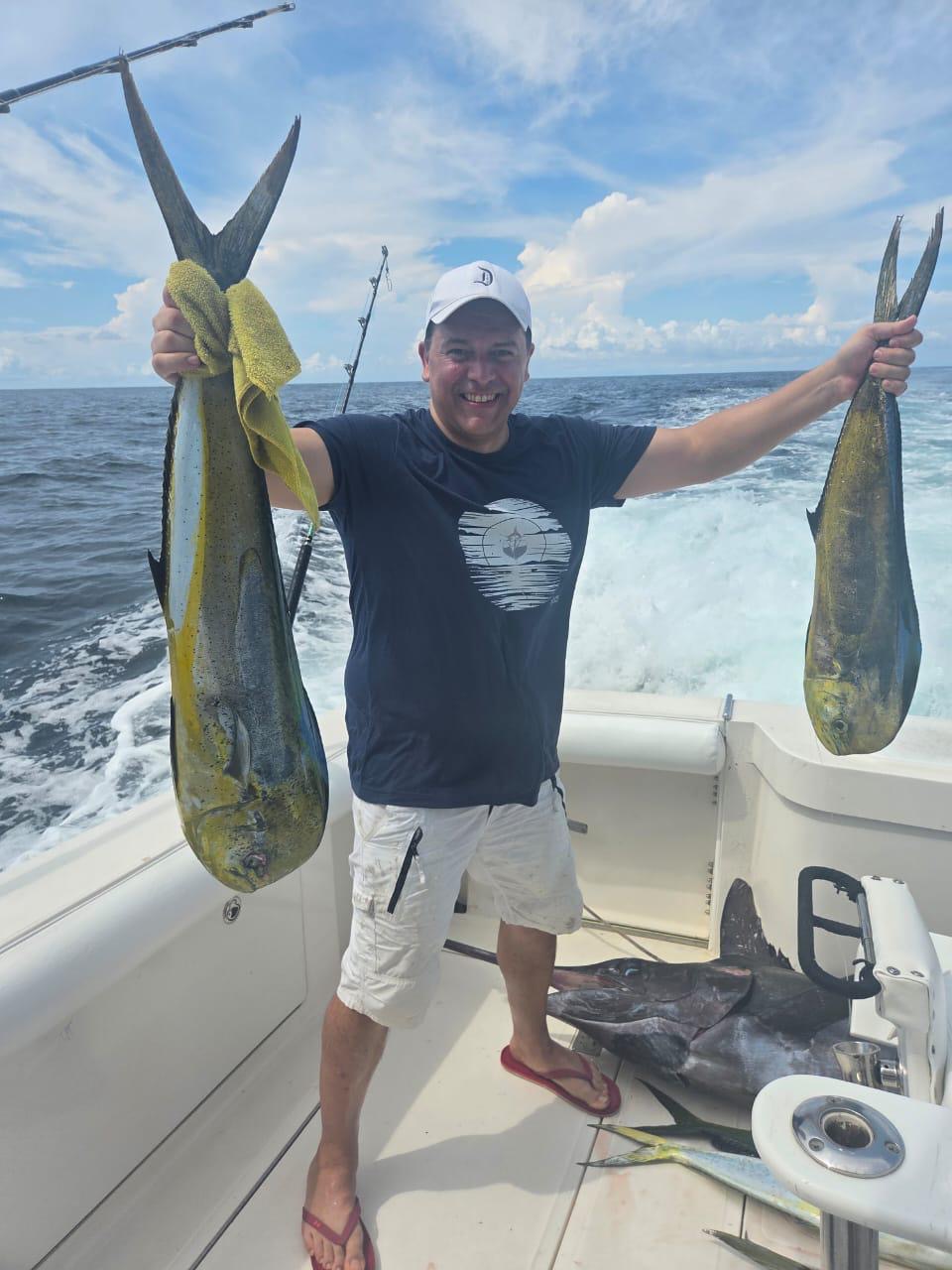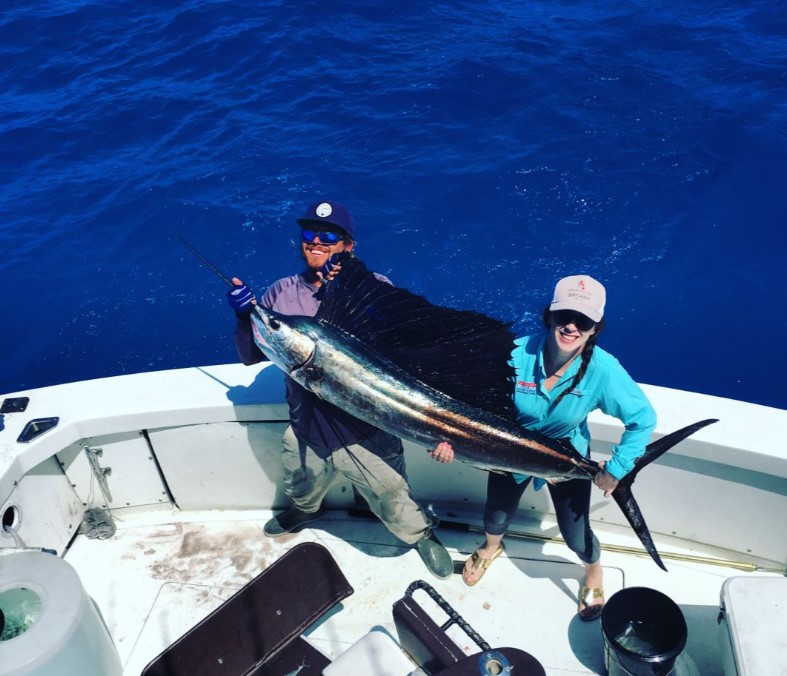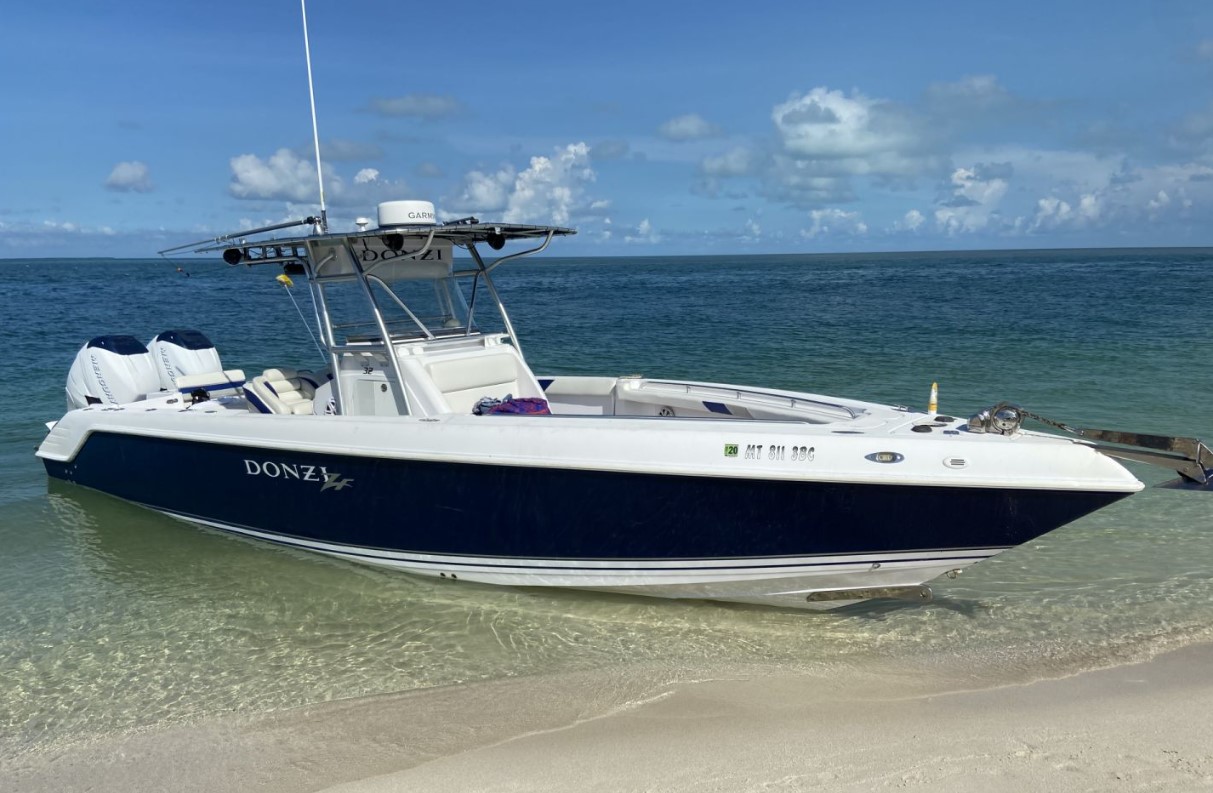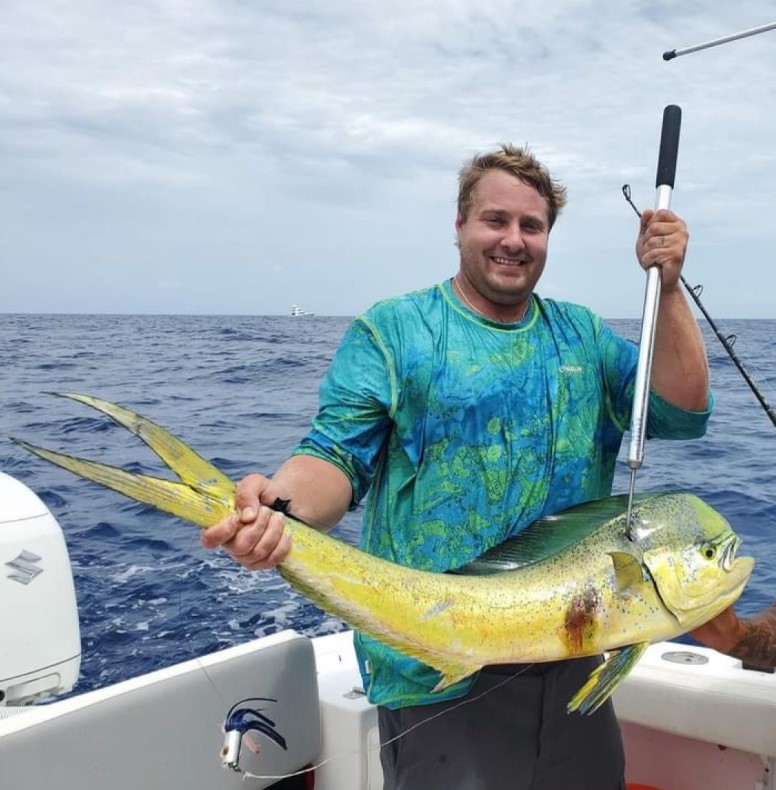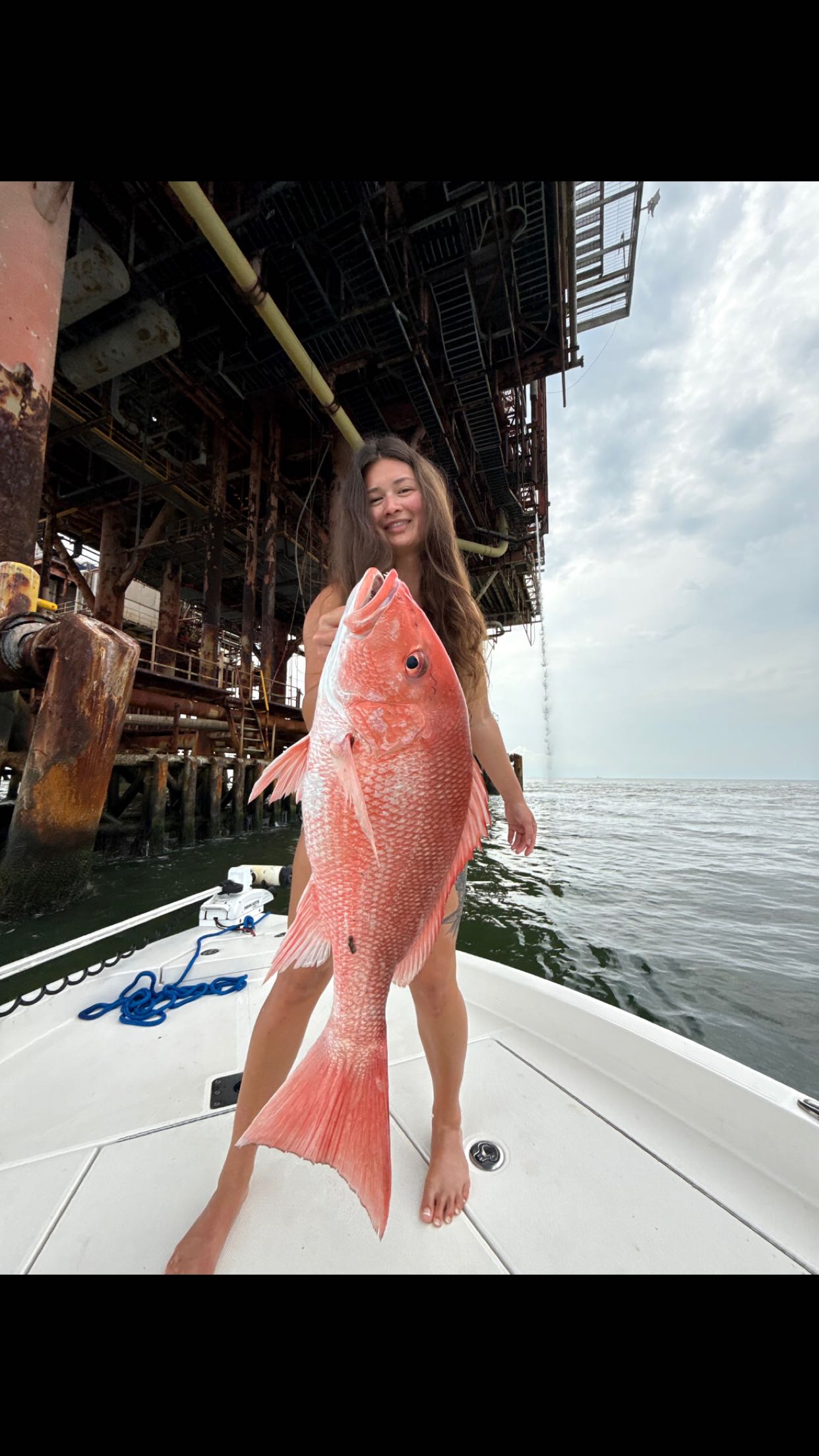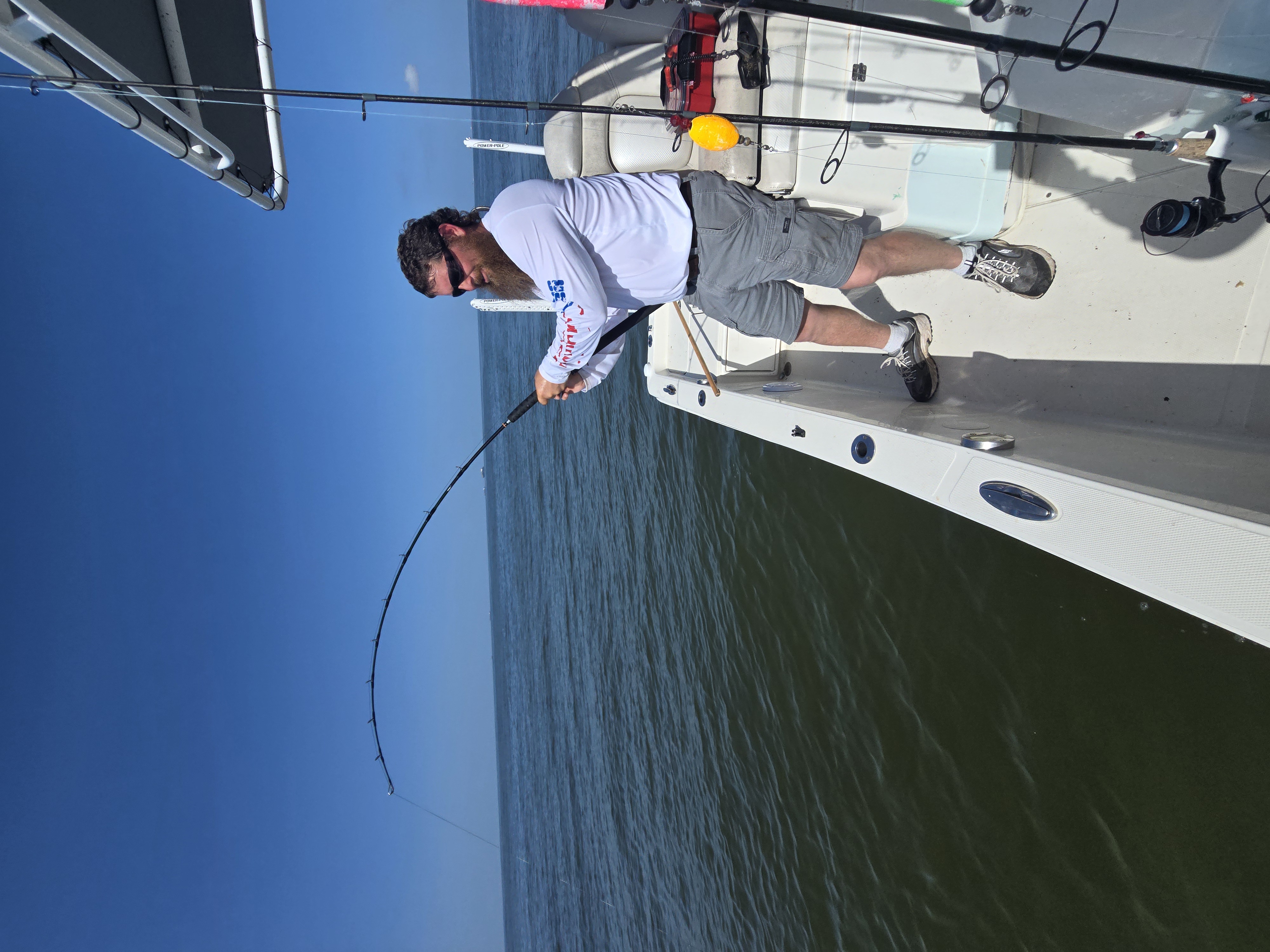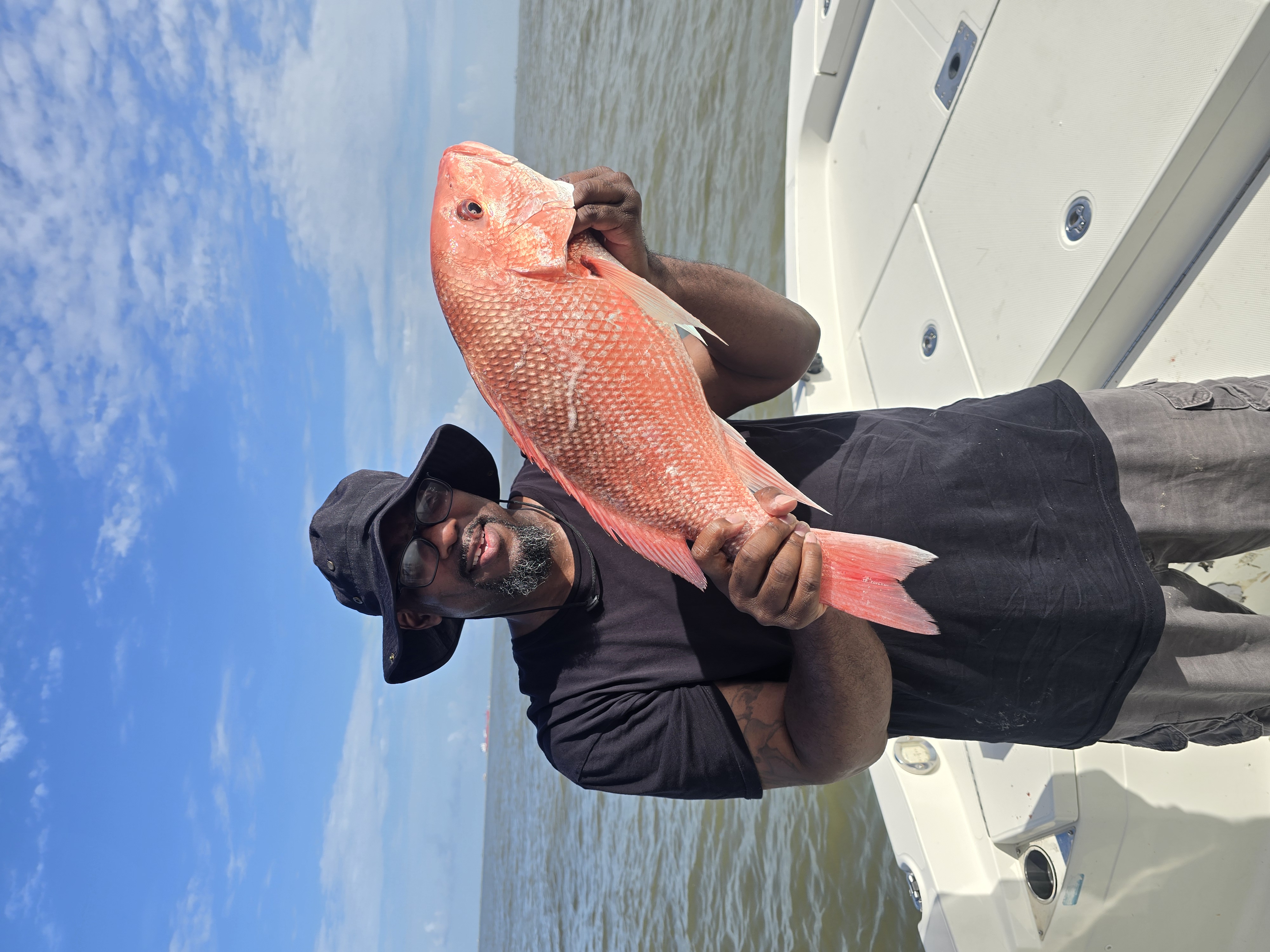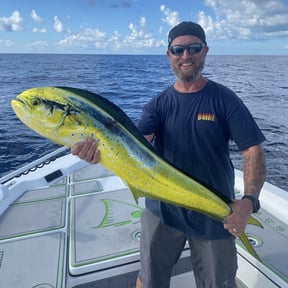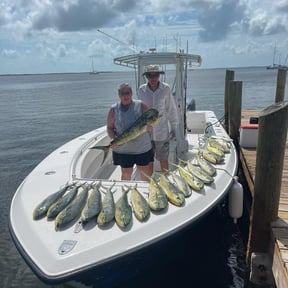Fishing Trip
5-9 Hours Offshore Trip - 27’ Dusky
Deep Sea Fishing in Puerto Vallarta
31 Ft Grady White Deep Sea Fishing
Deep Sea, Nearshore Fishing in Key West
6-8 Hour Trip – Reef & Offshore
Deep Sea, Nearshore Fishing in Key West
12 Hour Trip – Offshore
Deep Sea Fishing in Kailua-Kona
Half Day Charter 4 Hours
Deep Sea, Nearshore Fishing in Riviera Beach
Palm Beach Offshore Trip
Deep Sea Fishing in Puerto Vallarta
Deep Sea Fishing 12 Hrs Luxury 35
Deep Sea, Nearshore Fishing in Key West
4-8 Hour Offshore Trip
Deep Sea, Nearshore, Jetty in Venice
Nearshore Red Snapper Charter
We started Captain Experiences to make it easy to book fishing and hunting guides around the world. With over 2,000 Damn Good Guides, our platform makes finding and booking a trip seamless. Head here to check out our trips.
Offshore Fishing: What You Need to Know
Offshore fishing is a popular category of fishing enjoyed by anglers around the world. The action on an offshore fishing charter is unmatched, with the biggest sport fish in the world being caught on these trips. Here’s what you need to know about offshore fishing so you can decide if it’s right for you, and if it is, which trip you should take.
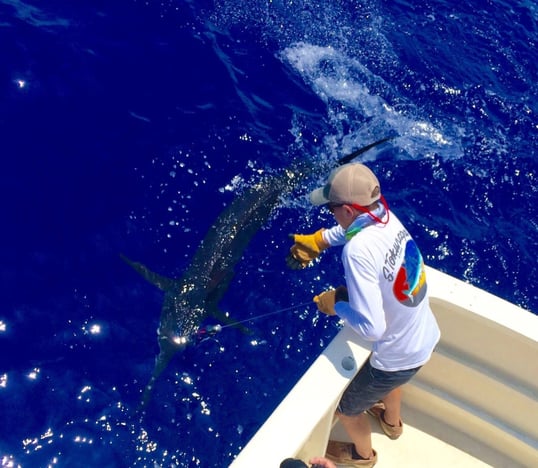
What is Offshore Fishing?
Offshore fishing is a category of saltwater fishing that takes place in deep water (hence why it’s often called deep sea fishing). Typically, boats have to travel miles away from shore to reach the deep water where giant fish roam. In some locations, however, like Hawaii or Cabo San Lucas, Mexico, the water drops off immediately, making for a good option for those looking for a deep sea experience who may not have time for a full day on the water. If you want to know how far from shore these boats travel to reach deep water, check out “How Far Offshore are the Big Fish?”, which takes a deep dive into that topic.
Within the category of offshore fishing, there are various subcategories, including different fishing styles and target species. In addition to location, these factors must be considered when choosing your trip, as they directly influence the distance needed to travel to hit prime spots, impacting the length of your trip.
How to Catch Fish Offshore
While offshore or deep sea fishing can look very different depending on the trip, trolling is usually the first thing people think of. Trolling is done by setting out several baited lines at different distances, which are slowly pulled through the water by the boat. While trolling, the boat drives near underwater structures, ledges, or anything that may hold fish. With the bait dragging behind the boat, once a fish bites, the hook is set immediately. Fish commonly targeted while trolling—including marlin, tuna, wahoo, mahi mahi, and more—are capable of swimming at speeds of up to 50 mph, so trolling at 6 mph is not a problem.
Bottom fishing is another type of offshore fishing, and can sometimes be done in nearshore waters. Bottom fishing uses weighted lines with jigs, live bait, or cut bait that are dropped down to deep structures like reefs and shipwrecks. Because they have shorter travel times, calm seas, and delicious fish, this type of trip is among the most popular. The fish usually targeted by bottom fishing include red snapper, grouper, and amberjack, all of which are stout fighters.
The third major type of offshore fishing is Drift fishing, a popular approach for anglers chasing huge fish in the Atlantic. This type of fishing can be done a few different ways, but it generally consists of using baited hooks that are either weighted and sunk to the bottom or suspended near the surface with a float. Once the lines are set out, the wind and current make the boat drift across the water while slowly dragging the bait. Depending on the setup, drift fishing can be used to target everything from tuna to kingfish.
Deep Sea Fishing Charters
Heading offshore for a fishing trip is always a great way to spend a day on the water. Add in good company and the possibility of catching some truly giant fish, and it can be the experience of a lifetime. If you’re looking to leave land behind and head offshore, check out our deep sea fishing charters.
Joey Butrus
Updated on July 31, 2023
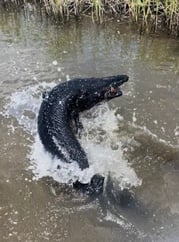
June 22, 2022

November 7, 2023
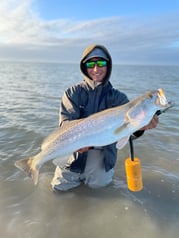
January 19, 2021
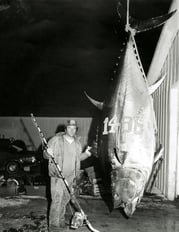
June 3, 2021

October 26, 2020
Related Articles
June 16, 2023
April 10, 2022
June 26, 2023
Featured Locations
- Fishing Charters Near Me
- Austin Fishing Guides
- Biloxi Fishing Charters
- Bradenton Fishing Charters
- Cabo San Lucas Fishing Charters
- Cancun Fishing Charters
- Cape Coral Fishing Charters
- Charleston Fishing Charters
- Clearwater Fishing Charters
- Corpus Christi Fishing Charters
- Crystal River Fishing Charters
- Dauphin Island Fishing Charters
- Daytona Beach Fishing Charters
- Destin Fishing Charters
- Fort Lauderdale Fishing Charters
- Fort Myers Fishing Charters
- Fort Walton Beach Fishing Charters
- Galveston Fishing Charters
- Gulf Shores Fishing Charters
- Hatteras Fishing Charters
- Hilton Head Fishing Charters
- Islamorada Fishing Charters
- Jacksonville Fishing Charters
- Jupiter Fishing Charters
- Key Largo Fishing Charters
- Key West Fishing Charters
- Kona Fishing Charters
- Lakeside Marblehead Fishing Charters
- Marathon Fishing Charters
- Marco Island Fishing Charters
- Miami Fishing Charters
- Montauk Fishing Charters
- Morehead City Fishing Charters
- Naples Fishing Charters
- New Orleans Fishing Charters
- New Smyrna Beach Fishing Charters
- Ocean City Fishing Charters
- Orange Beach Fishing Charters
- Panama City Beach Fishing Charters
- Pensacola Fishing Charters
- Pompano Beach Fishing Charters
- Port Aransas Fishing Charters
- Port Orange Fishing Charters
- Rockport Fishing Charters
- San Diego Fishing Charters
- San Juan Fishing Charters
- Sarasota Fishing Charters
- South Padre Island Fishing Charters
- St. Augustine Fishing Charters
- St. Petersburg Fishing Charters
- Tampa Fishing Charters
- Tarpon Springs Fishing Charters
- Venice Fishing Charters
- Virginia Beach Fishing Charters
- West Palm Beach Fishing Charters
- Wilmington Fishing Charters
- Wrightsville Beach Fishing Charters
